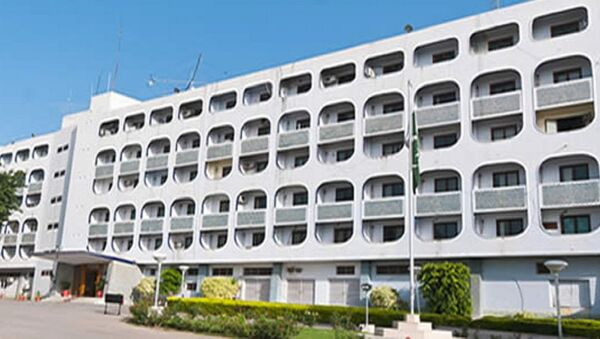Pakistan on Thursday again voiced its deep concern over the Ayodhya verdict, maintaining that all mosques in neighbouring India are now under threat.
"The decision has failed to uphold the demands of justice. The decision has put the security of all mosques and places of worship in India under threat. It has made clear that minorities in India are no longer safe," Pakistan Foreign Office spokesperson Dr. Mohammad Faisal said during his weekly media briefing.
Last Saturday, the Pakistan Foreign Office had said in a statement that "a process of rewriting history is underway in India in order to recast it in the image of a Hindu Nation” in pursuance of an ideology in favour of the majoritarian Hindu community.
It further warned that "The rising tide of extremist ideology in India, based on the belief of Hindu supremacy and exclusion, is a threat to regional peace and stability."
While calling on the international community to restrain New Delhi from pursuing this Hindu-centric “extremist ideology”, Islamabad said the Indian government should ensure the protection of Muslims at all costs.
The Ayodhya land dispute, a decades-old religious conflict between the Hindu and Muslim communities in India, flared up following the 1992 demolition of a Muslim mosque, Babri Masjid, by Hindus claiming that Mughal Emperor Babar had ordered the demolition of a Hindu temple in Ayodhya, a city in the Indian state of Uttar Pradesh.
The Supreme Court of India’s decision to hand over the disputed piece of land to the Hindu community came as Indian Prime Minister Narendra Modi and his Hindu nationalist Bharatiya Janata Party (BJP), who has led a campaign to build the temple for years after the 16th-century Babri mosque was demolished, appealed to the masses to maintain calm, saying the verdict was not anyone’s victory or loss.
The Hindu community has always believed that the Babri mosque had been built over the birthplace of one of their most revered deities, Lord Ram. Muslims, however, have countered that argument by insisting that they had worshipped at the mosque for centuries until an idol of Ram was covertly placed inside the mosque in 1949.
After the demolition of the mosque on 6 December 1992, Hindus constructed a makeshift temple in the name of Lord Ram, a physical incarnation of the god Vishnu, who is believed to have been born at the site.
The destruction of the mosque was followed by Hindu-Muslim violence that left at least 2,000 people dead, most of them Muslims.
Subsequent years have seen groups belonging to both religions bickering in courts over who had control over the historic site.


